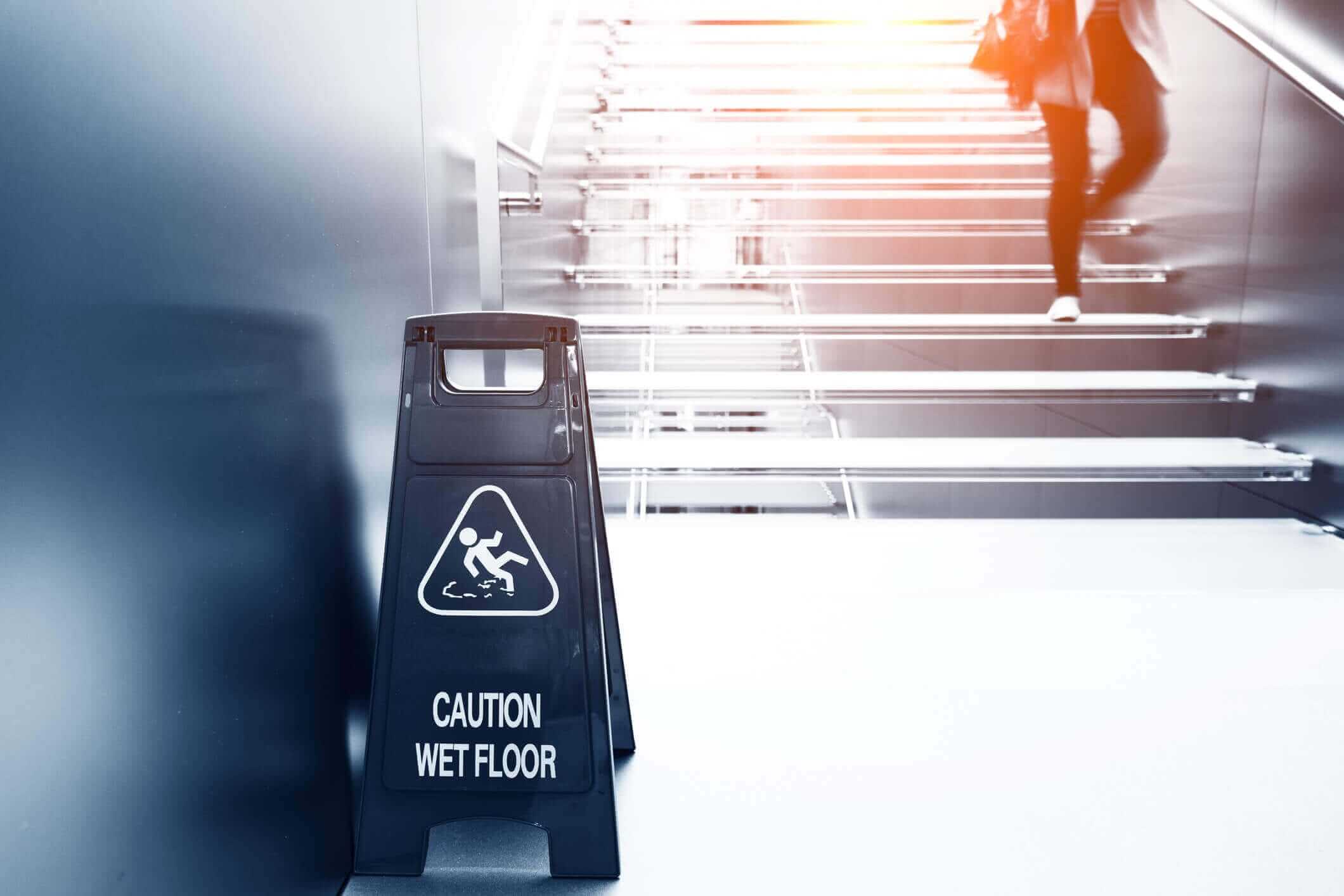Slip-And-Fall Attorney In CA
Property owners are responsible for maintaining their property in safe conditions. If you slip-and-fall or trip-and-fall and are injured, the owner of the property can be held liable if it can be shown that they contributed to dangerous conditions, or did not remedy dangerous conditions, that resulted in the fall and injuries. Every year, falls account for over 8 million emergency room visits and can leave victims with lifelong pain and suffering.
One of the most common conditions is a wet or slippery floor that is not properly marked. This is particularly common when shopping, especially in indoor malls. Slippery floors can be caused by cleaning or leaks – for example, rain coming through a hole in the roof or leaks from heating and cooling systems. Other things that can cause dangerous conditions are broken or damaged floors, loose carpeting, broken stair handrails, etc. Such conditions must also have warnings, such as wet floor signs.

Falls can be caused by a single step that is not properly marked or illuminated. Outdoors, weather conditions and potholes can also cause falls. Falls caused by faulty escalators are another common occurrence in shopping malls.
How Do You Establish Fault?
To receive redress from a property owner, you need to be able to show that they caused the condition, knew of it and did nothing about it, or should have known about it. That essentially means common sense must be used. Special rules apply to government properties – which often include sidewalks, paths in parks, etc. Although the government does have a duty to maintain reasonably safe conditions, they also have broad legal immunity which can make a suit particularly difficult. Claims against the government must be brought sooner than those against individuals.
What Is the Standard of Reasonableness?
California uses comparative negligence, meaning anything you were doing that could have contributed to the fall lessens the award to which you may be entitled – things like talking on your cell phone or running. A higher standard is applied to escalators and property owners are always responsible for maintaining their escalators. For example, if an escalator suddenly stops for no reason, causing a trip and fall accident, the owner is likely to be liable.
Contact Us
While it can be difficult to prove a property owner’s liability for a slip-and-fall accident, if you or a loved one has been involved in one, it is worth discussing with a skilled and experienced attorney like Josh Cohen. For consultations, contact our Central LA office today via our form or by phone at 323-545-3718. We are located at 4929 Wilshire Boulevard
#510
Los Angeles, CA 90010, south of Hollywood and north of the I-10. We look forward to defending your rights as a slip-and-fall accident victim.
